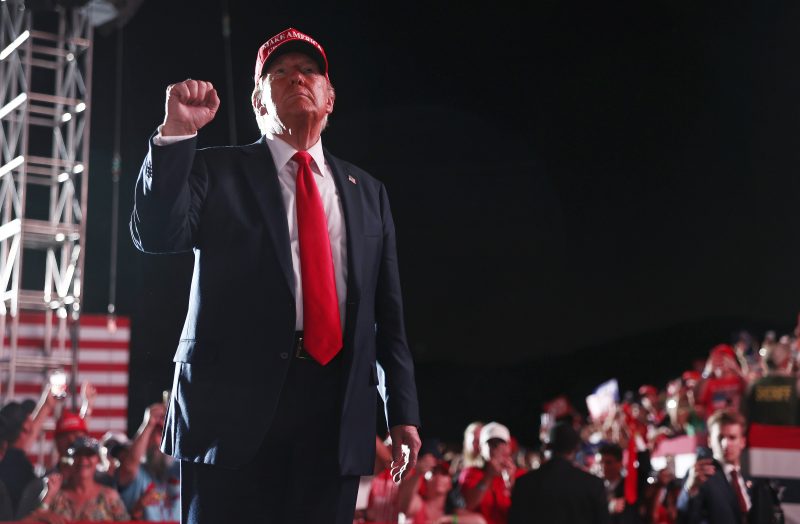In a recent rally, former President Donald Trump’s response to a heckler has sparked controversy and raised concerns about the rhetoric used by public figures in addressing dissent. The incident occurred during a speech at a rally in Florida, where a protester began shouting criticisms at Trump, prompting him to respond forcefully by suggesting that the heckler should be knocked out.
This kind of rhetoric from public figures, especially those holding significant influence like former presidents, can be concerning as it may incite violence or aggressive behaviour towards individuals expressing opposing viewpoints. The power dynamics at play in such situations must be carefully considered, as the words of influential figures can have real-world consequences, particularly when directed at a passionate and sometimes volatile audience.
While it is not uncommon for public figures to face hecklers or protesters during public appearances, it is important for them to model respectful and appropriate responses to such situations. Encouraging or inciting violence, even in a rhetorical manner, sets a dangerous precedent and contributes to a divisive and hostile political climate.
Critics of Trump’s response have pointed out that as a former president and a public figure with a wide reach, his words carry significant weight and can influence the behaviour and attitudes of his supporters. Advocating for violence, even in jest or frustration, is irresponsible and undermines the principles of democracy and civil discourse.
In a society already grappling with polarisation and political tensions, it is crucial for public figures to set a positive example and promote dialogue and understanding, even in the face of disagreement or opposition. Encouraging violence or aggression towards dissenting voices only serves to deepen divisions and foster a culture of animosity and confrontation.
It is important for individuals in positions of power and influence to exercise restraint and choose their words carefully, recognising the impact that their rhetoric can have on public discourse and societal norms. Respectful engagement with opposing viewpoints is essential for a healthy and vibrant democracy, and public figures have a responsibility to uphold these values in their words and actions.
As the incident at the rally underscores, the language used by public figures matters, and it is crucial for leaders to demonstrate respect, tolerance, and civility in their interactions with dissenting voices. By fostering an environment of mutual respect and open dialogue, we can work towards a more inclusive and harmonious society where diverse perspectives are valued and heard.

